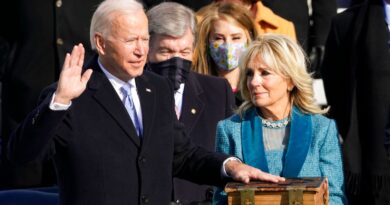The Trump administration has brokered a limited cease-fire that focuses on energy sites in Russia and Ukraine, although a broader peace agreement is still being developed.
In a recent interview, President Donald Trump suggested that Russian negotiators might be deliberately prolonging cease-fire discussions following their over three-year conflict with Ukraine.
In the past week, the White House has facilitated several incremental cease-fire proposals between Russia and Ukraine. Recently, both Moscow and Kyiv indicated support
for a 30-day cease-fire concerning attacks on each other’s energy facilities. By March 25, the White House announced that Moscow and Kyiv had, in principle, agreed to another arrangement
restricting hostilities in the Black Sea.
Trump spoke with Newsmax just hours after the White House revealed new advancements regarding the limited Black Sea cease-fire plan. During an extensive conversation, host Greg Kelly inquired about Trump’s perspective on whether Russian negotiators are intentionally stalling the peace process.
“I don’t know. I mean, I’ll let you know at a certain point, but I think that Russia wants to see an end to it,” Trump remarked. “But it could be they’re dragging their feet.”
The president added that he has, on occasion, prolonged negotiations for various reasons.
“I’ve done it over the years,” Trump stated.
Trump emphasized that he still believes Russia is interested in ending the conflict.
Regarding the recent negotiations on March 25, the Kremlin
indicated that it views the 30-day halt on strikes aimed at Ukrainian energy facilities as effective starting March 18. This cease-fire could be extended with mutual agreement from all parties.
Ukrainian President Volodymyr Zelenskyy, in a statement on March 25,
mentioned, “It has been agreed with the American side that a cease-fire in our energy sector can begin today.”
Further discussions will be necessary before a Black Sea cease-fire can commence. During a White House event on Tuesday, Trump remarked that his administration is evaluating “five or six conditions” presented by the Russian side related to the Black Sea cease-fire talks.
Earlier this month, Zelenskyy expressed support for a more comprehensive cease-fire arrangement, wherein both countries would suspend all hostilities for at least 30 days. Russian President Vladimir Putin has
shown some openness to this broader cease-fire, but he raised concerns about the proposal, such as who would oversee violations and whether Ukraine and its allies could utilize the pause to rearm and prepare for future conflicts.
Putin also inquired about the implications of a broader cease-fire on the combat within Russia’s western Kursk border region, which Ukrainian forces have held since August of the previous year. Last month, Zelenskyy suggested he might
exchange Ukraine’s Kursk holdings back to Moscow in exchange for some of the territories Russia has taken from Ukraine since 2014.
Recently, Russian forces have reported
significant advances in reclaiming their Kursk territory from Ukrainian control. If Moscow can regain all of its border territory prior to the cease-fire implementation, it may weaken Zelenskyy’s negotiating position moving forward.





